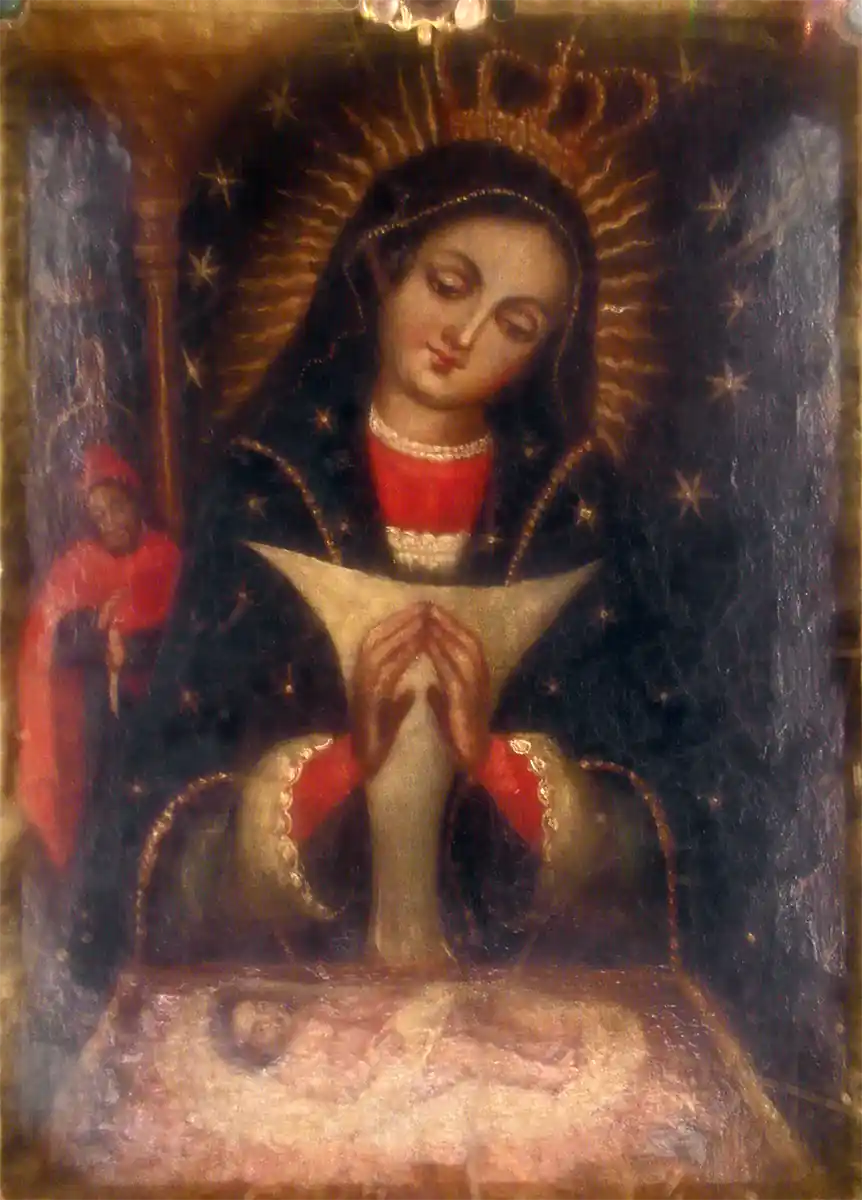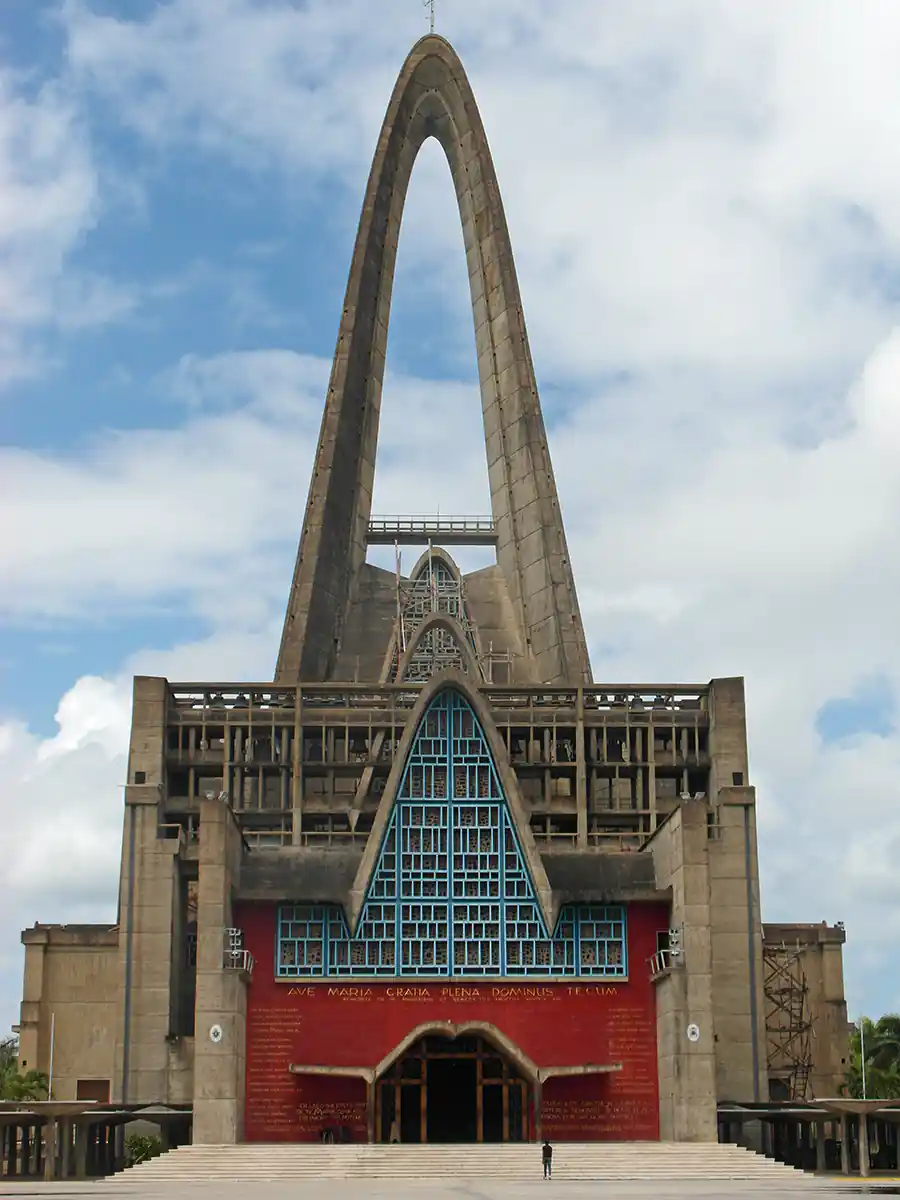Virgen de la Altagracia, Higuey
Located 105 miles (170 kilometers) east of Santo Domingo, the Basilica of Our Lady of Altagracia in Higuey is the most venerated pilgrimage site in the Dominican Republic. According to one legend, in 1502, the Spaniards Alonso and Antonio de Trexo settled near Higuey, bringing a painting showing a Nativity scene with Mary gazing at the baby in the foreground and St. Joseph looking on from the background. The brothers donated the painting to the local parish church, where it became known for its miracle-causing powers. This attracted the attention of the Archbishop of Santo Domingo, who had the painting taken to that city in a sealed trunk. However, the painting mysteriously disappeared along the way and reappeared in the Higuey church.
An alternate legend from the same period relates that a merchant of Higuey once asked his two daughters what he might bring them from his journey to the capital. The elder daughter requested jewelry, while the younger, influenced by a dream, asked for a painting of the Virgin of Altagracia, a puzzling title the father had never heard. On his way home, with gifts for the elder daughter only, he stopped to stay with some friends, who also gave food and lodging to a stranger the same night. Over supper, the merchant told his friends about his trouble fulfilling his younger daughter's request. Hearing this, the stranger opened his pack and brought forth a painting of the Virgin of Altagracia, which he gave to the astonished merchant. The mysterious stranger had gone the following morning before anyone could thank or repay him. Returning home, the merchant gave the painting to his daughter, but it would not remain in their house; instead, it disappeared and reappeared in a nearby orange tree. Locals interpreted this as the Virgin's desire to be placed in her own chapel, which should be erected at the site of the orange tree. The painting was first placed in a simple chapel of wood and straw and, after that, in 1572, installed in a stone church of San Dionisio, considered to be the first Marian shrine in the Caribbean Islands. The painting was moved to the Basilica of Our Lady of Altagracia two hundred years later, constructed from 1952 to 1971.
The Frenchmen Pierre Dupre and Dovnoyer de Segonzac designed the concrete basilica. It is shaped like a Latin cross, rises to 262 feet, and has beautiful stained glass windows and 45 bells made of bronze. The grounds surrounding the basilica are planted with hundreds of stately palm trees, and the museum contains a fine collection of exhibits concerning Our Lady of Altagracia. The portrait of Our Lady is 13 inches wide by 18 inches high (33 centimeters by 45 centimeters). In the painting, which has had five significant restorations (the last in 1978), Mary wears the colors of the Dominican flag and a crown that was not initially part of the portrait but was added later at an unknown date. The frame is made of gold, silver, precious stones, and enamel and is the work of an unknown eighteenth-century artist.
Our Lady of Altagracia is considered the Protector of the Dominican People (though the national patron is the Virgin de las Mercedes at Santo Cerro near the city of La Vega). While hundreds of pilgrims visit the Altagracia shrine each day, the most important festival of the Virgin is celebrated on January 21, when many thousands of pilgrims journey to Higuey from all parts of the country. The Night of Prayer, Las Noches de Vela, is celebrated the night before.

Martin Gray is a cultural anthropologist, writer and photographer specializing in the study of pilgrimage traditions and sacred sites around the world. During a 40 year period he has visited more than 2000 pilgrimage places in 160 countries. The World Pilgrimage Guide at sacredsites.com is the most comprehensive source of information on this subject.


